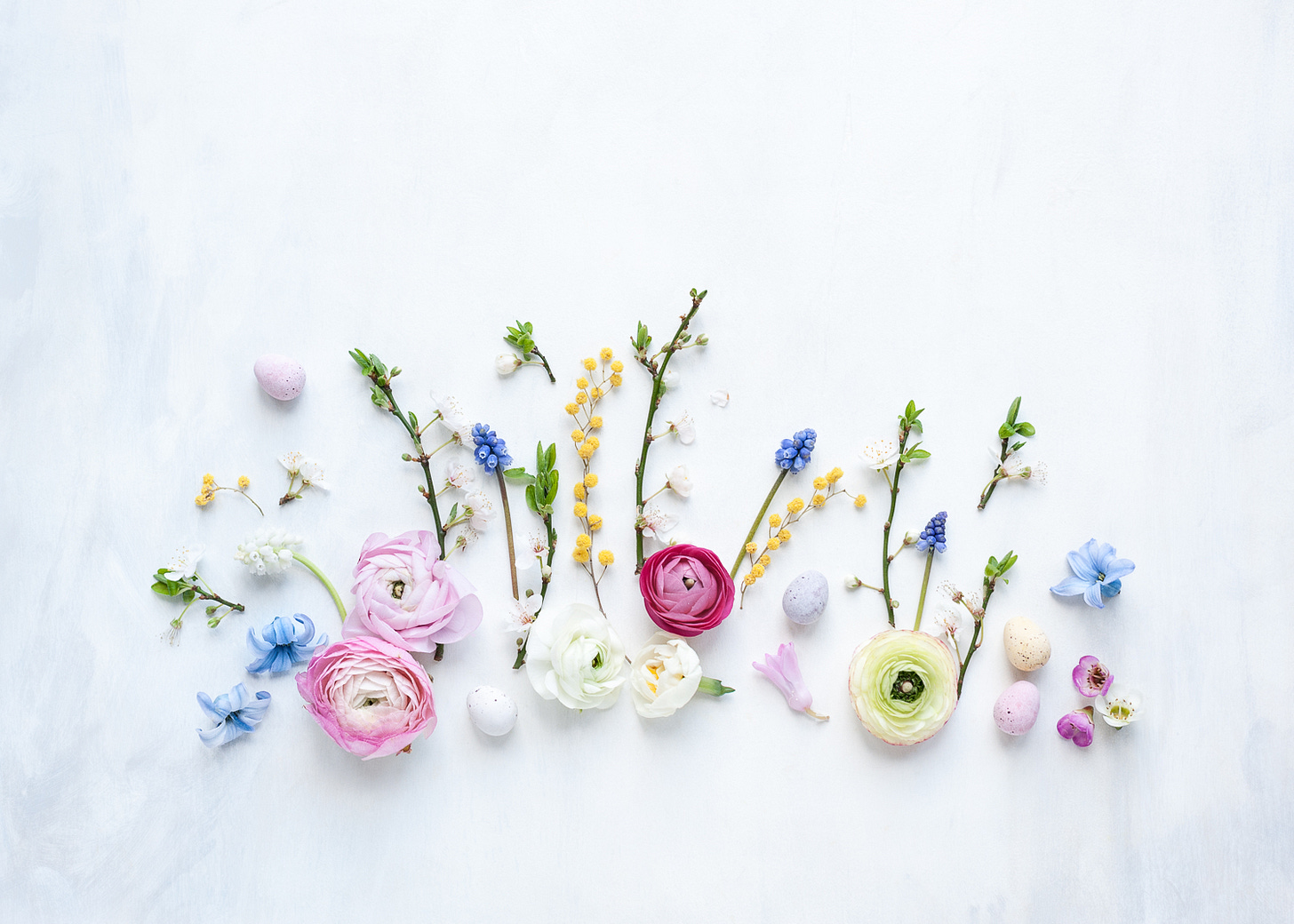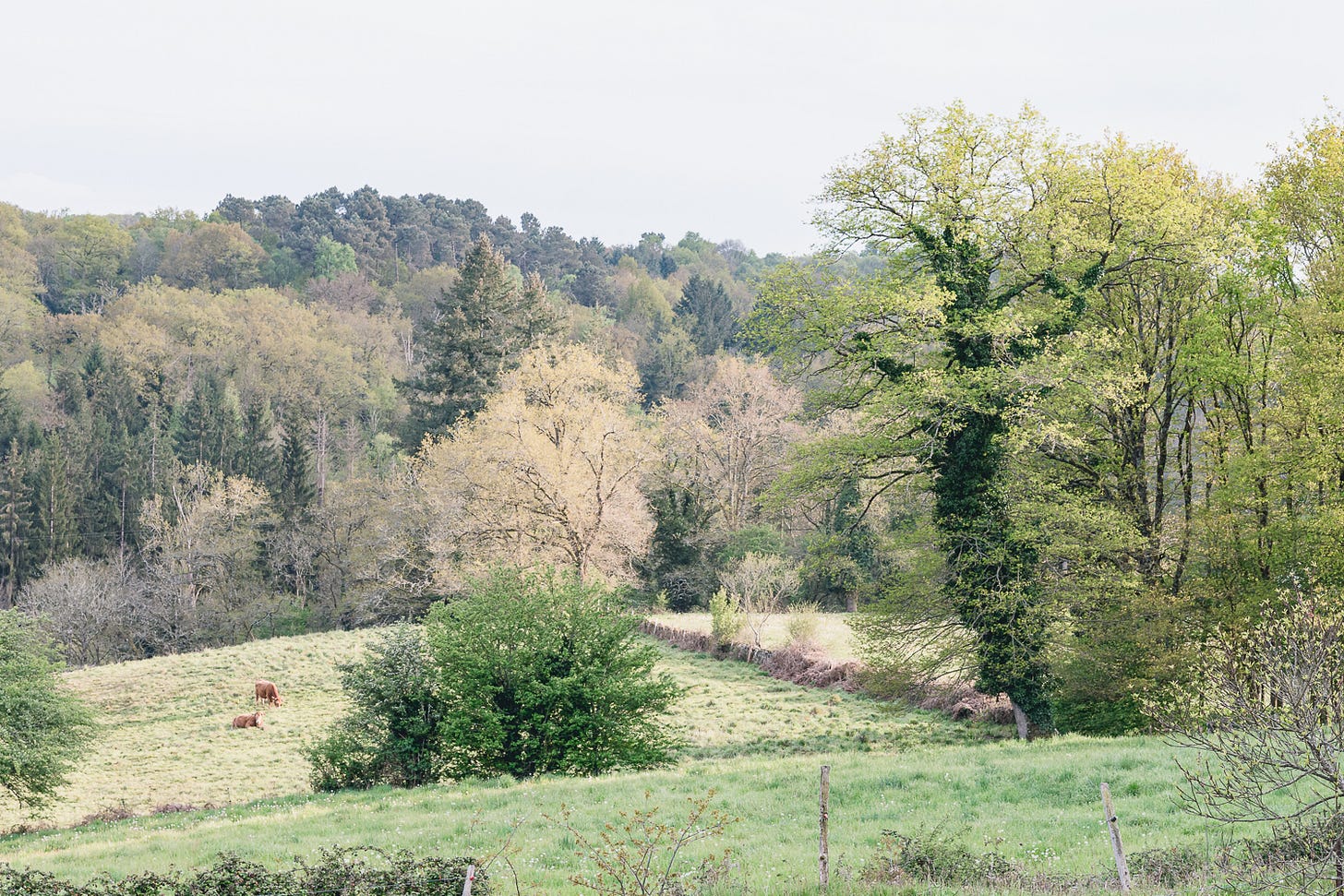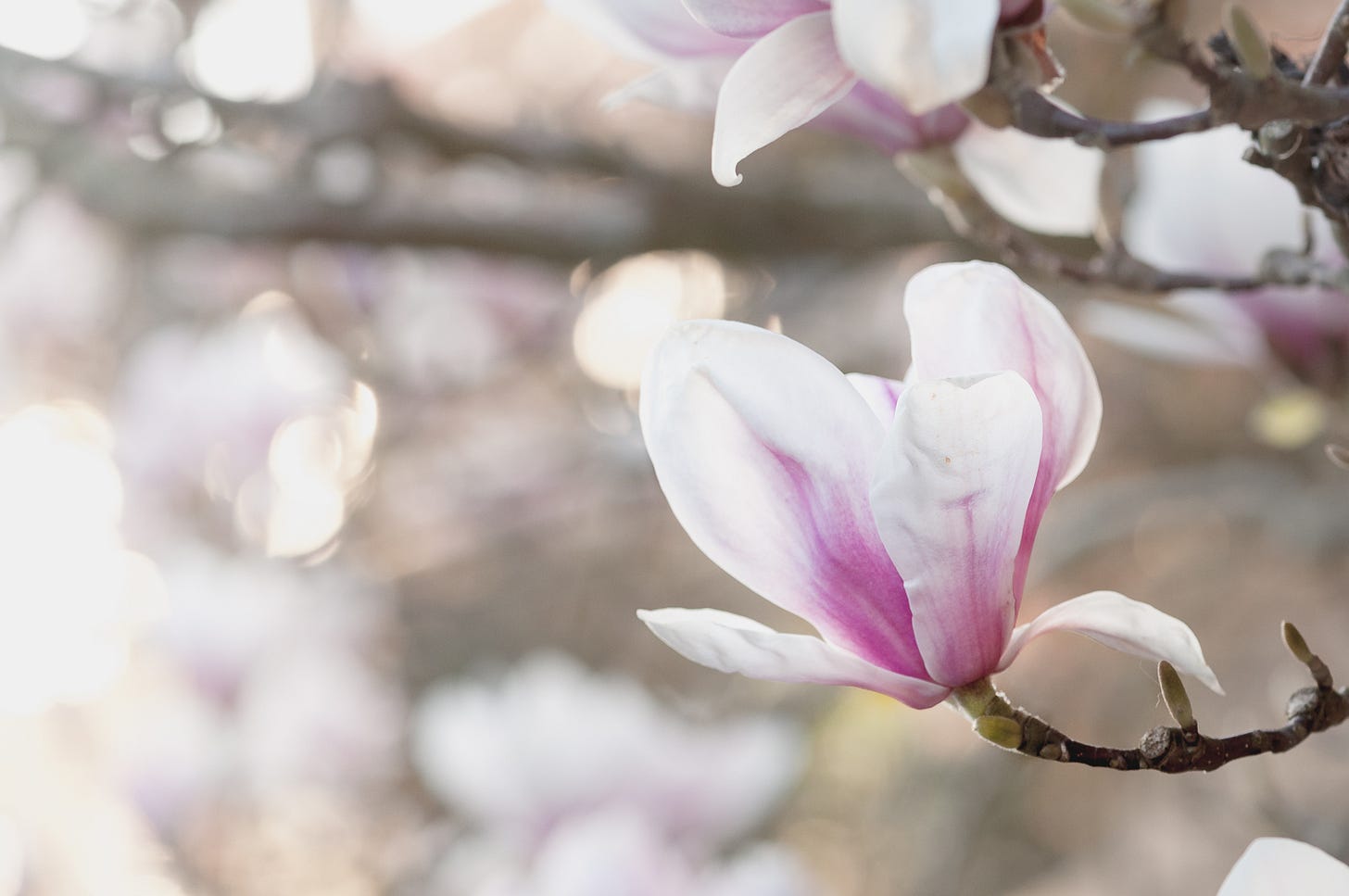My husband and I moved to France from the UK with the intention to live a slow-paced, simpler life.
For us, that meant buying a house in the country with enough land for a garden, a vegetable patch, and some trees - a little haven for us and our animal companions.
After a bit of searching, at the end of 2020 we finally got the keys to our new home, an old stone house with wonky walls, a few run down outbuildings, about 3/4 of an acre of land, and a beautiful view over fields and woods.
In January we started the renovation works and planted our first tree.
I remember walking around our garden, trying to figure out how to turn a field full of brambles and weeds into the garden of my dreams.
I felt overwhelmed and I didn't have a clue where to start, but I also felt incredibly excited at the idea of planting trees and creating a place of beauty.
I poured over gardening books, watched YouTube videos, researched ways to improve the soil, grow vegetables without pesticides, and create a biodiverse habitat that attracts bees, and all kind of pollinators and wildlife.
In Autumn 2021 we planted a small orchard, several trees, a mixed hedge of trees and shrubs, and a dozen roses. It took us a few days to plant everything, and a lot of digging on my husband's part, but the feeling of elation was incredible - a rush of endorphins, and so much joy at the thought that one day, when we'll no longer be on this earth, some unknown person might munch on our apples, sit in the shade of the linden tree, have a spring picnic under the cherry blossom, and watch the maple leaves turn incandescent in the autumn sunlight.
We felt like we were making a difference for the environment, and leaving a good legacy for future generations.
Spring came, with the first delicate leaves and flowers. I did a daily check of each tree and shrub, willing them to grow strong and thrive, and wondering how tall they'd be at the end of their first summer.
But the summer of 2022 was a tough one - a season of heatwaves, drought, and wildfires.
The first heatwave arrived in mid-June, and temperatures reached 43˚ C.
We kept all shutters closed during the day to protect us from the heat, and were grateful for the thick stone walls that kept the ground floor cool.
We had bought straw from our farmer neighbour and used it to mulch the vegetable patch and the newly planted trees and shrubs, to avoid water evaporation.
I covered the most delicate plants with makeshift tents to offer some shade during the hottest part of the day, but the roses stopped blooming, and lots of vegetable plants suffered - just like me.
I don't do well in the heat. I have no energy, sleep badly, and I need to take extra care of my mental health to avoid bouts of depression.
I spent most of the day indoors, emerging from the house only early in the morning, or at night, to water plants and to refill the shallow bowls of water I scattered around the garden for bees and wild animals.
When temperatures finally became more bearable, the plants perked up, and so did I.
I managed to spend more time outdoors, and sleep better at night. I had a bit more energy, and my mood improved.
After a few weeks of bearable temperatures, another heatwave hit us in mid-July.
In the Gironde department, about three-hour drive south of where we live, two massive wildfires were raging, and eventually burned over 20,000 hectares of forests (roughly 50,000 acres).
I couldn't bear to see footage of the fires - witnessing the destruction of flora and fauna was heartbreaking, and my thoughts went to all those people who were facing the possibility of losing their home, their livelihood, and even their life.
All I could do was hope that the rain would come, and help the fire-fighters in their dangerous work.
All over the world, people were struggling with similar problems, so I stopped reading the news, and tried not to think of climate change and what it might mean for our beautiful planet.
Then one day I woke up to the smell of smoke.
I was in the garden drinking my morning cup of tea when the smell hit my nostrils, faint at first but gathering intensity by the minute.
I scanned the horizon in all directions, frantic, terrified of seeing a plume of smoke close to our house.
I couldn't spot anything, but the smell persisted, strong and foreboding.
Trying to keep calm, I went back inside to check online for any news. And there it was - I was smelling the smoke from the Gironde wildfires. Carried by the wind, the smoke had already travelled almost 500 kilometres, reaching even Paris.
I had tears in my eyes. Our house was safe, but the smell brought to mind apocalyptic visions of dark skies, trees burning, animals dying.
I felt devastated, and powerless.
My thoughts turned dark.
What was the point of my husband and I planting trees and shrubs, and trying to create a biodiverse garden?
How could our plant-based diet and simple lifestyle possibly make a difference to the planet, and help stop climate change? It felt like, in the end, nothing we did mattered.
I spent a couple of weeks in this glum mood, constantly checking temperatures and weather forecast in Europe, hoping to see an end to the drought and heat.
At the end of July our well dried up - an unprecedented event according to our neighbours.
We had strict water restrictions, but we managed to save all our plants thanks to the rain water we'd stored in three IBC tanks.
Despite feeling so low, I kept working on the garden design, adding more trees and shrubs to the plan.
Come September, the temperatures dropped and we had some rain.
My mood lifted.
I ordered a few more trees and shrubs, and 20 bare root roses to plant in winter.
October and November were unseasonably warm, but then the first frosts arrived, and winter settled in.
I planted bulbs, ordered seeds, tweaked the garden plans. My husband did more digging, and we did more planting.
I researched ways to optimise irrigation, save water, and lower our carbon emission.
And I realised that last summer, when I'd felt powerless and in such a miserable mood, I was given a choice: give up, or become even more fiercely protective of this beautiful planet we call home.
And I chose the latter.
I know in my heart that every little action matters.
I can choose to fall prey to the thought that climate change is inevitable, the human race is walking towards extinction, and trying to make a difference is pointless, or I can make conscious choices about how I spend my time, what I eat, and what I buy.
It's a daily commitment, and at times it's tough going, and frustrating.
It's imperfect - it's impossible to have no impact on the planet and its resources, but it's possible to tread more lightly, improve the young generations' future, and leave a legacy of beauty, kindness, care.
Imagine if all people who live in a house planted a tree in their backyard.
In the UK alone, there are over 10 millions houses with a garden, so that would be 10 million trees.
One tree each.
One small individual action.
A huge difference.
With this realisation, came my desire to do more to protect and restore nature, and encourage others to do the same.
I think that most, if not all, daily habits that generate so much pollution and destruction are not intentional, but often stem from the mad speed of today's world, and the consequent disconnection from nature.
The only thing I can do really is show that it is possible to live simply, with less, at a slower pace, and be content.
I can share my experience, so that whoever reads my words might realise that there are many different ways to live this one precious life, there's no need to reach for more all the time - more stuff, more growth, more money, more resources, more things to do - and that there are alternatives to the fake, impossible to achieve, "perfect" life promoted by social media and constant ads...and also realise that creativity, nature, and beauty are healers, and that kindness - towards the self, others, and the world in general - sparks inner and outer transformation.
So here I am, sharing my vision of the world and my simple life, hoping to inspire others, connect with like-minded people, and let my pebble of small actions ripple out and spread positive changes.









We have a new garden too, so we had the same concerns last year. Fortunately, the young trees and plants seem to have pulled through.
We are all going to have to learn to manage ressources, especially, water differently. I t’embête my grand parents, who had lived through two world wars, using washing up water for the garden for example. It seems plants don’t mind a bit of soap.
Henrie xo
Thank you for sharing such a personal post, Cristina. I loved reading about what you’ve achieved with your garden. It's very inspiring.
Waking up to the smell of the wildfires must have been terrifying. It’s so sad to see the destruction caused by humans, and like you, I often have to step back from the news.
I no longer have a garden, but I did plant a tree outside my last home. It's great to walk past and see it thriving. 🌳
“Give up, or become even more fiercely protective of this beautiful planet we call home. And I chose the latter.” - I couldn’t agree more!
I hope you're having a wonderful day. 🌷🌸